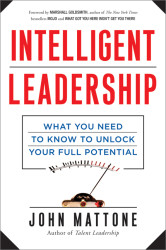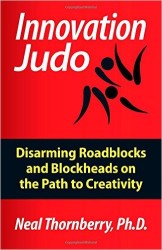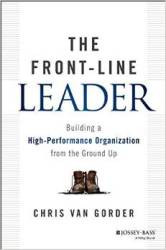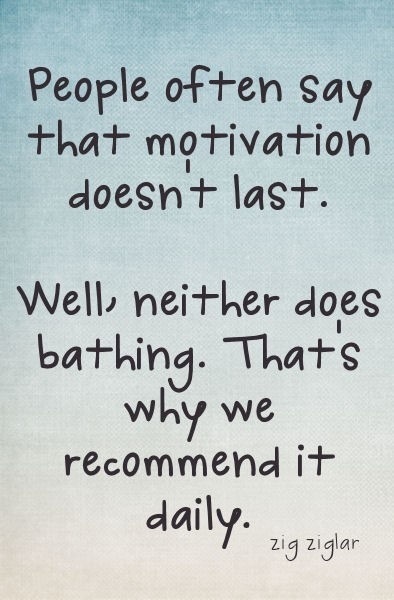This topic is a bit controversial, but it’s something that I believe and stand by. Why? Because I’m a fan of reading, for one, but also because I have personally seen this work as a tool in the world of work.
- I’ve used books within performance discussions, both positive (succession/development oriented) and negative (performance improvement/problem-focused) with varying degrees of results.
- I have helped to establish a library for employees to help them have access to some of the books that mattered not only to our industry, but also to the type of culture we wanted to have.
- I have read books that have made me better at work in a variety of ways. Knowledge really is powerful stuff.
Last week I was quoted in the Chicago Tribune talking about this very topic. The article is a good one and worth a read. Here’s a snipped:
It dawned on me recently that reading is not an activity that’s often associated with work. It’s more of a leisure-time endeavor, which is fine — but if it’s so darn good for us to read, why shouldn’t reading be a part of the working world?
I’m not talking about co-workers starting a book club, but rather companies encouraging all employees to read certain books. Maybe even launching discussions about those books or using them to drive home aspects of the company’s culture.
“I think it really applies to the workplace and the kind of environments we want to create,” said Ben Eubanks, a human resources analyst at Brandon Hall Group and an advocate for workplace reading. “One of the things that I like best is when you read it and I read it, and then we get together and talk about it. The discussion that happens afterward. If you’re sitting in a PowerPoint presentation, I’m telling you things and you’re taking things in but there’s really no discussion.”
He thinks reading should be an expected part of any employee’s performance. It could range from books that management picks for all workers to read — ones that get at the company’s core philosophies — to books that managers suggest for specific employees, with an eye toward helping make the employee better.
“I’ve worked with managers in the past to assign them a book that we think will help them learn the things they need to learn or develop a skill they’re not being exposed to,” Eubanks said. “People who are successful are often crazy about reading. They make time for that because they understand how important it is, and it’s kind of like a secret weapon.”
Instant replay
Let’s replay that last part again:
People who are successful are often crazy about reading. They make time for that because they understand how important it is, and it’s kind of like a secret weapon.
Simply put, leaders read. And people at all levels of our organizations can be extraordinary leaders, if we help give them the keys to learn and grow.
I can’t determine causation without some hefty research, so I can’t speak to whether reading makes us successful, or successful people naturally read more. What I can say is that there is correlation there and we can certainly attempt to exploit that for the betterment of our employees and their families.
The big picture
As I have shared numerous times in the past, reading is something I believe we all could stand to do more of. If you’re trying to read a book per week, learn how to set up a structured reading program within your company, or set up a book club in your local area to connect with other folks who want to get smarter, those are all worthwhile goals.
That’s why I have published dozens of book reviews over the years. That’s why I continue to accept the ridiculous number of pitches from publishers trying to get me to read and review books about HR, leadership, talent, learning, etc. I want to get better, but I also want to share with you so you can get better, too.
I can still remember the first book review I ever did. As I read The Pursuit of Something Better something changed and I really saw how the ideas I picked up from the book could impact my day to day HR practices. This is powerful stuff, and if you learn only one idea from a book that you can use on a regular basis, then it’s worth your time and money to invest.
Thanks for letting me rant a bit. Some of you will take this to heart, pick up a book (maybe one I have suggested), and commit to being better at this HR thing. Others will finish reading this article and move on, making no changes to their own professional growth. I hope I’ve reached you, dear reader, as one of the former.
 We all have mentors of varying shapes and sizes, and yet when we think about them, they are often people outside the business world that we claim as mentors: friends, family, clergy, etc. There is a definite need for more mentoring within our organizations, and we need to be growing leaders to take those roles. When you think about your managers, you can usually bring to mind a bad boss fairly quickly. What if the mentors we immediately thought of were those people closest to us in our working lives instead?
We all have mentors of varying shapes and sizes, and yet when we think about them, they are often people outside the business world that we claim as mentors: friends, family, clergy, etc. There is a definite need for more mentoring within our organizations, and we need to be growing leaders to take those roles. When you think about your managers, you can usually bring to mind a bad boss fairly quickly. What if the mentors we immediately thought of were those people closest to us in our working lives instead?


 If it sounds silly to you to see it spelled out like that, I’d have to agree. Learning about this stuff isn’t a one-time thing. It’s like the great Zig always said: People often say that motivation doesn’t last. Well, neither does bathing. That’s why we recommend it daily.
If it sounds silly to you to see it spelled out like that, I’d have to agree. Learning about this stuff isn’t a one-time thing. It’s like the great Zig always said: People often say that motivation doesn’t last. Well, neither does bathing. That’s why we recommend it daily.